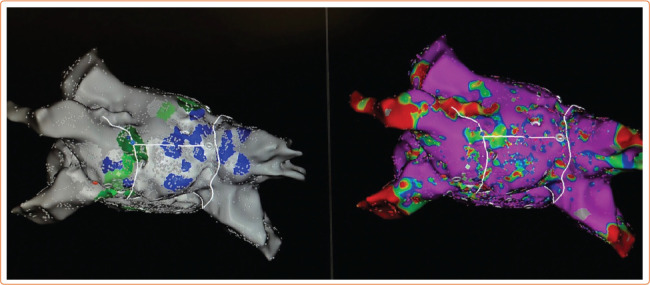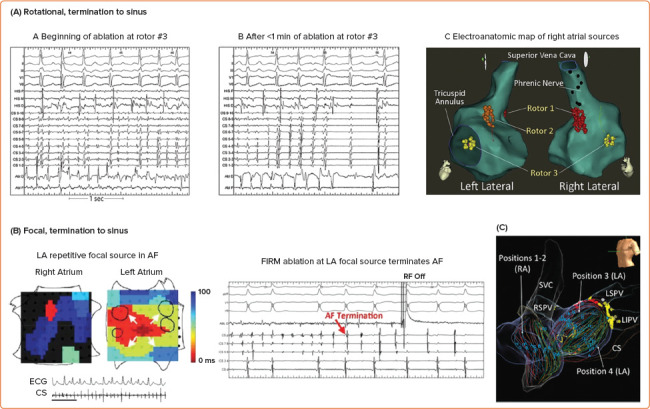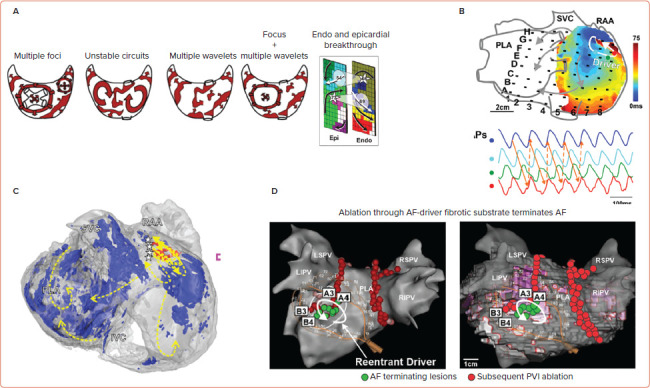Future Directions for Mapping Atrial Fibrillation.
IF 3.3
Q2 CARDIAC & CARDIOVASCULAR SYSTEMS
引用次数: 2
Abstract
Mapping for AF focuses on the identification of regions of interest that may guide management and – in particular – ablation therapy. Mapping may point to specific mechanisms associated with localised scar or fibrosis, or electrical features, such as localised repetitive, rotational or focal activation. In patients in whom AF is caused by disorganised waves with no spatial predilection, as proposed in the multiwavelet theory for AF, mapping would be of less benefit. The role of AF mapping is controversial at the current time in view of the debate over the underlying mechanisms. However, recent clinical expansions of mapping technologies confirm the importance of understanding the state of the art, including limitations of current approaches and potential areas of future development.



心房颤动定位的未来方向。
房颤的制图重点是确定感兴趣的区域,这可能指导管理,特别是消融治疗。映射可能指向与局部疤痕或纤维化相关的特定机制,或电特征,如局部重复、旋转或局灶激活。在房颤由无空间偏好的无组织波引起的患者中,如房颤的多小波理论所提出的那样,映射将没有什么好处。鉴于对潜在机制的争论,目前AF映射的作用是有争议的。然而,最近制图技术的临床扩展证实了了解最新技术的重要性,包括当前方法的局限性和未来发展的潜在领域。
本文章由计算机程序翻译,如有差异,请以英文原文为准。
求助全文
约1分钟内获得全文
求助全文
来源期刊

Arrhythmia & Electrophysiology Review
CARDIAC & CARDIOVASCULAR SYSTEMS-
CiteScore
5.10
自引率
6.70%
发文量
22
审稿时长
7 weeks
 求助内容:
求助内容: 应助结果提醒方式:
应助结果提醒方式:


